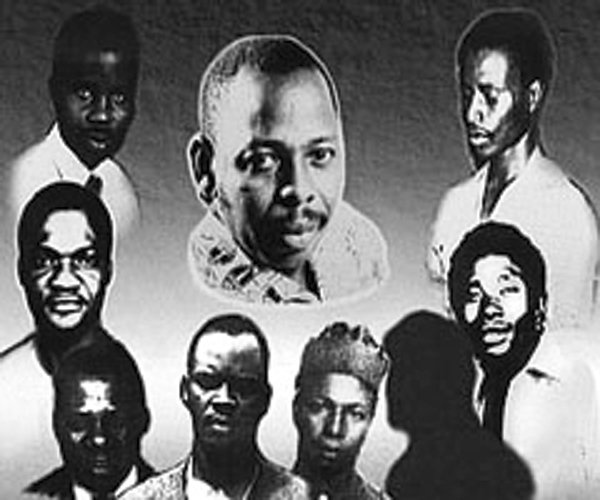On Monday, 11 November 2024, President Bola Tinubu through his media aide released a statement honouring the memory of Ogoni leaders including Ken Saro-Wiwa who were killed in 1995 for leading the fight for ecological justice in Ogoni and the Niger Delta. In the statement, the President stated; “We honour their memory by recognising the sacrifices made and pledging to strive for a future characterised by peace, justice, and sustainable development for all communities, particularly those in the Niger Delta.” The president went further to admit that “the subsequent struggles of Ogoni leaders to protect their environment from harmful oil exploration were met with severe repression, culminating in the tragic execution of Ken Saro-Wiwa and eight other leaders in 1995”.
As frontline civil society organizations focused on environmental justice, we are delighted that the President has deemed it appropriate to honour the memory of these martyrs of ecological struggle. We are particularly delighted that the President recognizes that they were murdered because they fought to protect their environment from harmful oil extraction activities that had polluted their lands and rivers; and poisoned their people.
For clarity, it is important to note that the Nigerian military junta headed by General Sani Abacha authorized the hanging of Ken Saro-Wiwa, Saturday Dobee, Nordu Eawo, Daniel Gbooko, Paul Levera, Felix Nuate, Baribor Bera, Barinem Kiobel, and John Kpuine. The 9 were instrumental in mobilizing Ogonis under the Movement for the Survival of the Ogoni People (MOSOP) and had issued a set of demands contained in the Ogoni Bill of Rights which included calls to the Nigerian government to clean up the Ogoni environment and restore livelihoods of the indigenous people who had suffered decades of reckless oil extraction by Shell. MOSOP had called global attention to the poverty, neglect and environmental destruction which decades of oil exploitation had bequeathed the Ogoni people. MOSOP demanded fairer benefits to the Ogoni people from oil, as well as remediation and compensation for the ecological damage caused by the activities of Shell. Their selfless mobilization and campaigning led to the 1993 expulsion of Shell from Ogoniland. The military government responded to this genuine concern with widespread militarization of Ogoniland and the Niger Delta region, mass killings, arson and the eventual executions that left the world outraged. The 9 were murdered after the recommendations of a stage-managed tribunal and denied the opportunity to appeal.
The statement by the President is the first time since the unfortunate events of 1995 that a government has admitted to the injustice of the killings and repression of the Ogonis. However, it is important that the President goes further in this effort at reconciliation and justice.
As civil society organizations, we have consistently demanded an admission that the quasi-judicial process which resulted in the conviction of the Ogoni 9 was a mockery of justice orchestrated by the military government with the active collaboration of Shell to quell community demands for resource and ecological justice. What we continue to demand is the complete exoneration of Ken Saro-Wiwa and the Ogoni 8. This is the only strategy that will bring closure to the thousands of Ogonis who were victims of government-driven repression characterized by murders, rape, torture and forced exile.
It is important to also note that the body language and the actions of successive governments in Nigeria have not always indicated the need to reconcile and bring about closure. In 2015, a memorial artwork in the form of a bus, designed in memory of the executed Ogoni leaders by friends in the United Kingdom was confiscated by the Nigeria Customs Service. All appeals to the government to release these memorabilia, including an order by the National Assembly and a judgement by the Federal High Court in Lagos, was denied. The bus remains locked up by the Customs Service in Lagos for absolutely no reason beyond provocation.
We are equally concerned that the Nigerian government continues to make frantic efforts to resume oil extraction activities in the oil wells located in Ogoni territory, after they were shut down in 1993. It is worrying that the government will decide to resume oil extraction when the pollution of the last decades is yet to be cleaned, and the recommendations of UNEP are yet to be fully complied with. How does one explain the fact that a site supposedly being cleaned up will resume full oil extraction activities with all the pollution that comes with it?
We are deeply concerned about the neglect of key issues around ecological and social justice in Ogoniland. The world recognizes that the people of Ogoni have suffered unprecedented pains and losses on account of oil extraction. No apology has been rendered for the destruction of their environment, the killing of their people, the loss of their livelihoods, the destruction of their villages, the forced exile of their people and the murder of their leaders. These issues must be fully addressed and measures put in place to protect the environment from further devastation.
Flowing from the foregoing, it is our recommendation that the government puts a stop to any attempt to resume oil activities in Ogoniland. It should rather concentrate on remediating the ecological disaster in the area, decommissioning aged oil infrastructure, replacing the lost livelihood of the people and securing justice for the countless Ogonis waiting for closure. We also call on the government to release the Ken Saro-Wiwa Memorial Bus, a sculpture which was confiscated by the Nigeria Customs Service and has been detained for years now for no just cause. This is the time to learn from the Ogoni situation, take note of how difficult remediation and restoration processes can be and commence the steps needed to clean up the entire Niger Delta.
This statement is endorsed by the following organizations
- Health of Mother Earth Foundation
- We the People
- Corporate Accountability and Popular Participation Africa
- People’s Advancement Centre
- Kabetkeche Women Development Resource Centre
- Lekeh Development Foundation


